At present, regional economic development is facing the dual challenges of the reconstruction of the global industrial chain and the dramatic changes in trade rules. The traditional extensive service model of "policy preferences + basic supporting facilities" of local governments is no longer sustainable. The core pain points are mainly reflected in: Under the background of the upgrading of international trade barriers, enterprises urgently need the government to build a public service platform for international economic and trade data, dynamically track changes in international market rules, and provide precise services such as interpretation of technical standards and guidance on access compliance. However, the ability of local governments in this regard is obviously insufficient. The logic of enterprise site selection has shifted from "policy dividend orientation" to "industrial ecosystem orientation". Local governments have not yet established a new development model of "chain leader enterprise traction + supply chain autonomous aggregation", making it difficult to attract upstream and downstream elements through symbiotic relationships with leading enterprises. Meanwhile, local governments have significant gaps in digital early warning of industrial chain risks, the construction of foreign-related legal support systems, and the reserve of cross-border talents. If they fail to seize the strategic window period of the "dual circulation" to accelerate transformation, they will not only be unable to withstand the secondary impact of the global industrial chain but also miss the opportunity for industrial structure upgrading.
Facing the above-mentioned challenges, recently, Shanghai University and Jianjing Investment Consulting Co., Ltd. held a special seminar, jointly delving deeply into core issues such as industrial planning, regional investment promotion, and the construction of safe overseas parks. They also witnessed the unveiling ceremony of the "Shanghai University - Jianjing Consulting Research Center for Safe Overseas Parks", marking a new chapter in their cooperation in the field of cultural new economy.
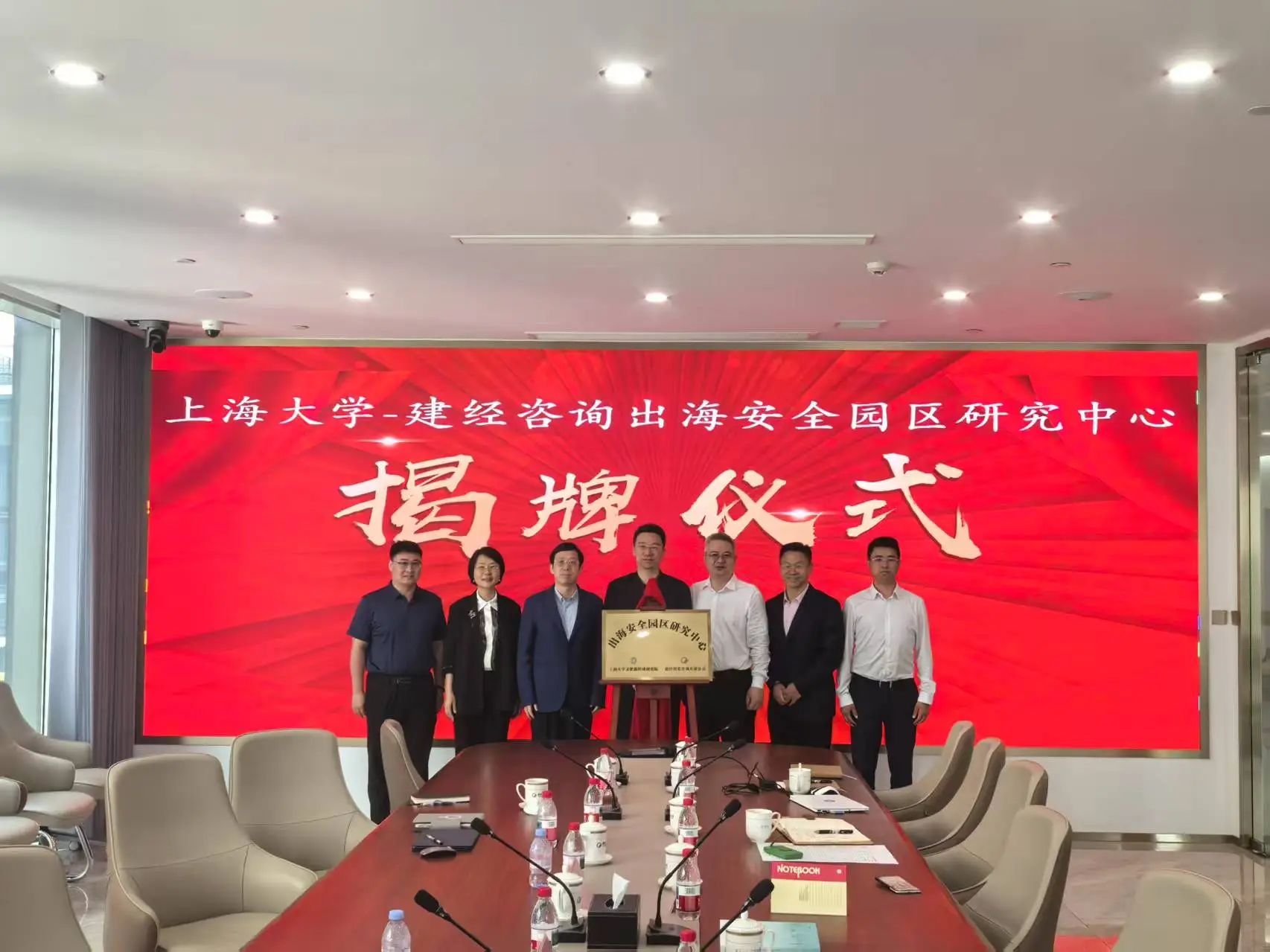
Lu Wen, deputy director and researcher of the Research and Technology Transfer Center of the Institute of Cultural New Economy at Shanghai University, delivered a presentation titled "Discussion on Market Expansion Strategies and Methods for Integrated Services of Industrial Planning and Implementation", systematically analyzing the collaborative logic between industrial planning and market expansion. He pointed out that against the backdrop of the accelerated restructuring of the global economic landscape, industrial planning needs to break away from the traditional "armchair theorization" model and build an integrated service system of "planning - introduction and cultivation - operation - investment". By integrating multi-dimensional capabilities such as policy interpretation, resource matching, and risk prediction, it can form differentiated market competitiveness. For the industrial planning of overseas security parks, Lu Wen suggests focusing on regional characteristic industrial clusters and taking "industrial chain map + local adaptation" as the core methodology to provide precise industrial positioning and resource connection solutions for enterprises entering the park.
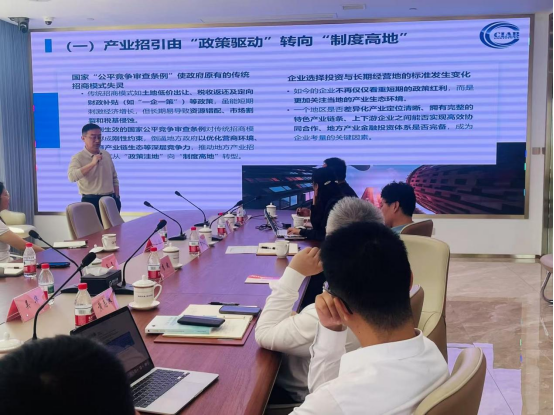
Professor Wu Hua, the secretary-general of the Institute of Cultural New Economy at Shanghai University, delivered a special presentation titled "Introduction to the Fourth-Generation Regional Investment Promotion and Industrial Development System for Promoting the Integrated Development of 'Dual Circulation'" at the conference. She pointed out that the traditional investment promotion model is becoming less effective in the current complex economic environment. The fourth-generation regional investment promotion and industrial development system should focus on "industrial ecosystem construction", integrating three key elements: digital technology, green and low-carbon, and cross-border collaboration, to create a three-in-one investment promotion ecosystem of "policy gravitational field + industrial ecosystem + service innovation field". The core feature of this system is to provide non-market-oriented key elements and form a symbiotic relationship with the leading enterprises in the chain. It operates through a "three horizontal and three vertical" matrix (horizontal: political, economic and philosophical navigation, anti-fine radar, dynamic flow sky Eye; Vertically: Supply chain armor, sustainable sails, and global magic lamps empower enterprises throughout their entire internationalization cycle, covering core areas such as risk prevention and control, compliance management, and green transformation. Wu Hua emphasized that local governments need to seize the opportunities brought by the global economic changes, establish a "domestic hub - overseas node" linkage mechanism, and break through the supply chain review barriers in Europe and the United States with technological tools such as electronic passport systems and aerospace data services. This will promote the in-depth integration of industrial chains and the global allocation of resources, and help Chinese enterprises upgrade from "product going global" to "system going global". Enhance industrial resilience and break through regional economic competitiveness under the background of dual circulation.
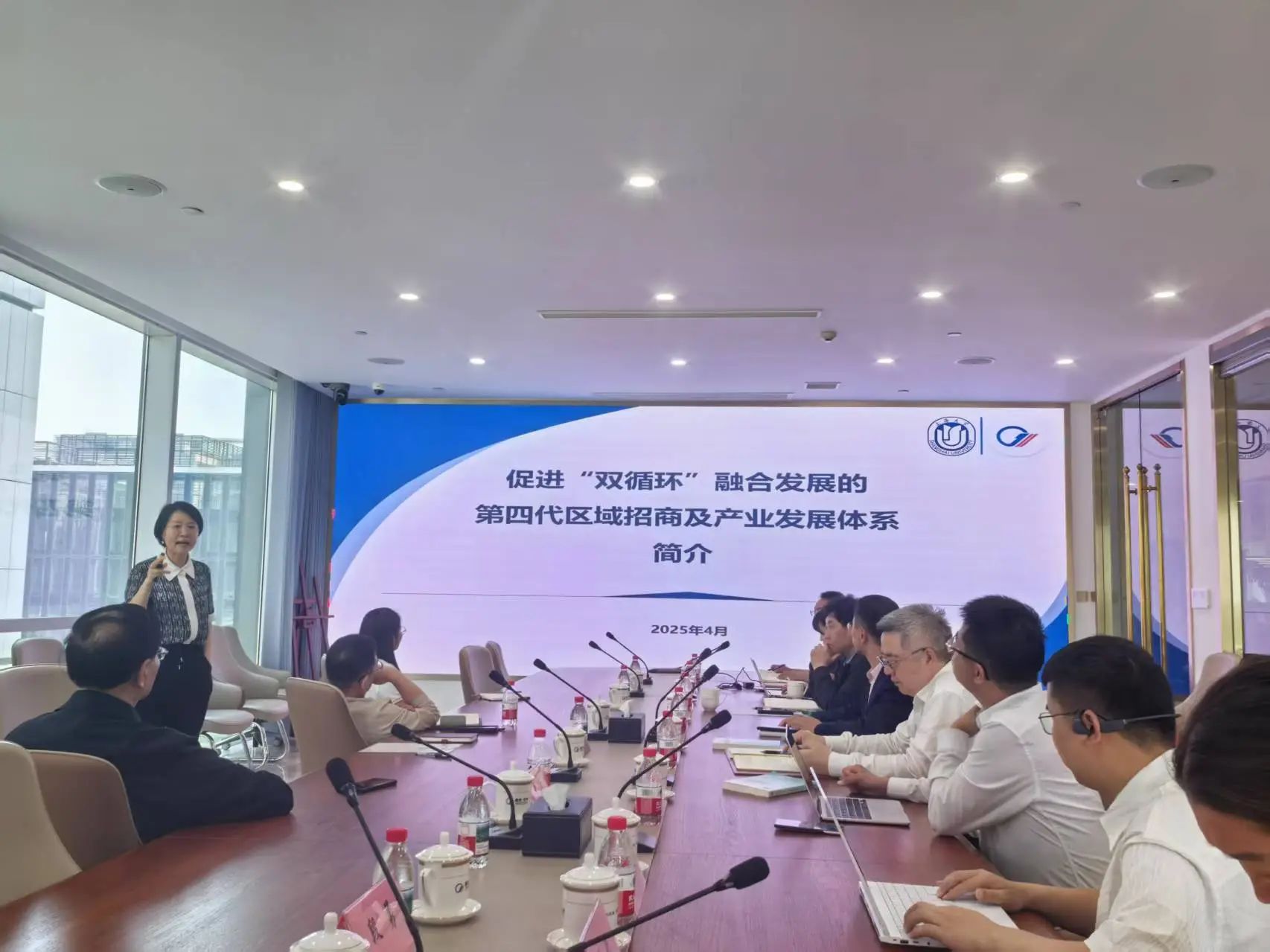
Duan Yong, the deputy secretary of the Party Committee of Shanghai University and co-director of the Institute of Cultural New Economy, profoundly expounded on the urgency of the overseas expansion strategy in his speech. He pointed out that in the current era of deep adjustment in economic globalization, "if you don't go global, you're out" has become a realistic logic for the survival of enterprises. With the deepening and advancement of the "Belt and Road Initiative", Chinese enterprises are upgrading from "going global with products" to "going global with industries". As a new type of overseas development carrier, overseas safety parks shoulder the dual mission of helping enterprises avoid risks and building an industrial ecosystem. The research center jointly established by Shanghai University and Jianjing Consulting is precisely to serve as a "lighthouse" in this historical process. Through the deep integration of academic research and practical exploration, it aims to open up a new safe and sustainable channel for Chinese enterprises to go global. Duan Yong emphasized that both sides need to rely on the research center to accelerate the formation of replicable and scalable overseas security solutions, helping more Chinese enterprises to remain stable and go far in international competition.
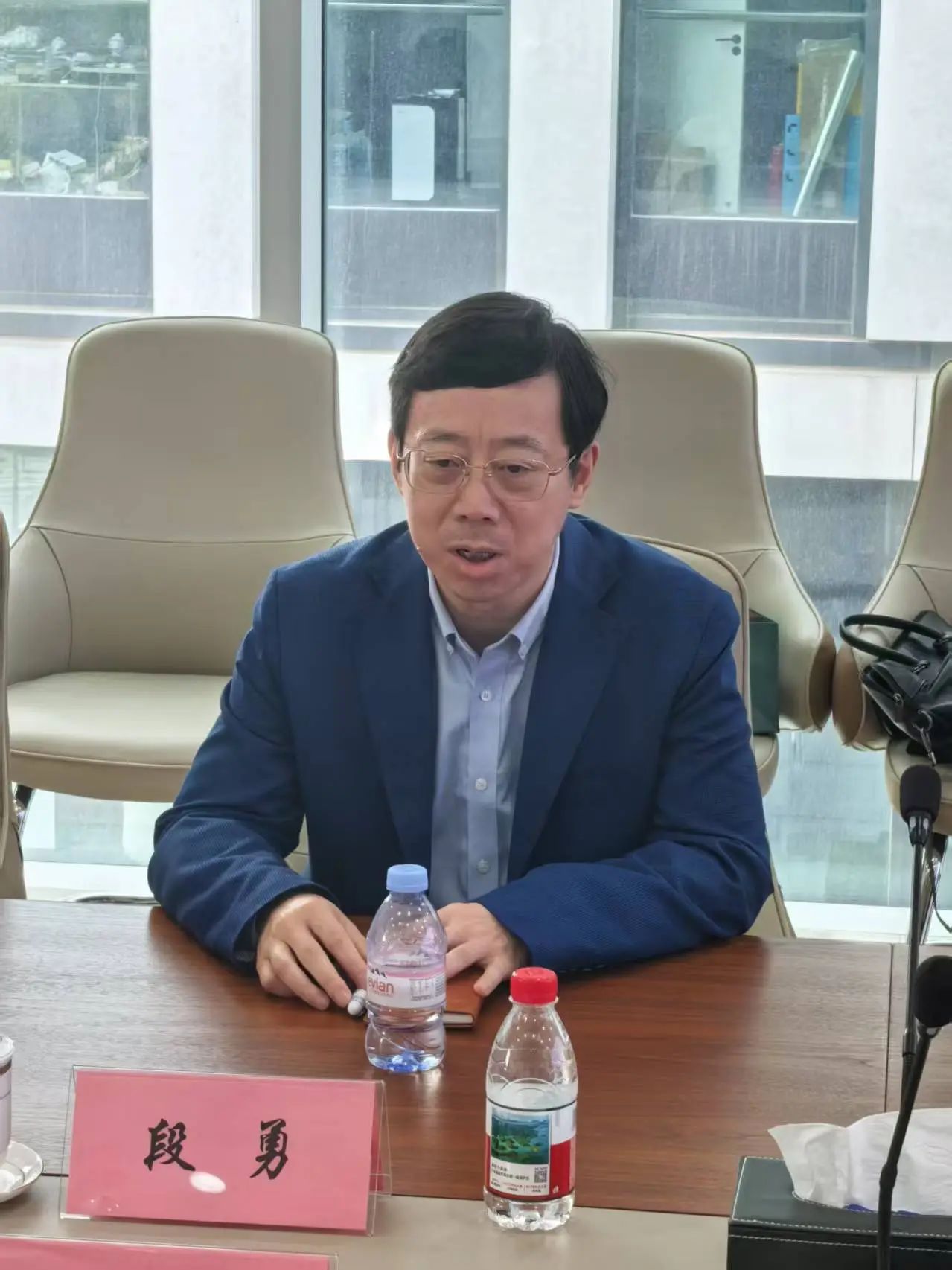
Zhao Di, director of the Management Committee of China Culture New Economy Development Group and co-director of the Institute of Culture New Economy at Shanghai University, further detailed the development path of the overseas safe park. He pointed out that the first cooperation laid the foundation for "going to sea in shallow waters" - that is, providing basic security guarantees for enterprises through a risk prevention and control system. At the current stage, it is necessary to leap to "going to sea in deep waters", with a focus on the construction of four core capabilities: First, the industrial chain is highly integrated, promoting the in-depth integration of enterprises entering the park with local overseas industrial chains, and forming an industrial symbiotic pattern where "you are in me and I am in you". Second, the delivery resilience has been enhanced, a global supply chain network has been built, and the ability to respond to sudden risks such as geopolitics and natural disasters has been strengthened. Third, enhance global cognitive capabilities. Through cultural empowerment and brand building, increase the recognition and say of Chinese enterprises in overseas markets. Fourth, it has a strong ability to resist risks, establishing a risk prevention and control system covering all dimensions such as law, compliance, environment and labor, and achieving a transformation from passive response to proactive prediction. Regarding the value of the cooperation between the two sides, Zhao Di emphasized the strategic significance of "mutual empowerment" : on the one hand, the academic achievements of Shanghai University can be transformed into market-oriented products through the research center, forming an innovative closed loop of "theory - practice - feeding back to theory". On the other hand, Jianjing Consulting can leverage the intellectual resources of universities to expand the overseas security consulting market and achieve a dual improvement in social and economic benefits. Our goal is to turn the "Overseas Safe Park" into a Chinese solution with international influence, allowing the world to see the unique value of Chinese wisdom in global governance.
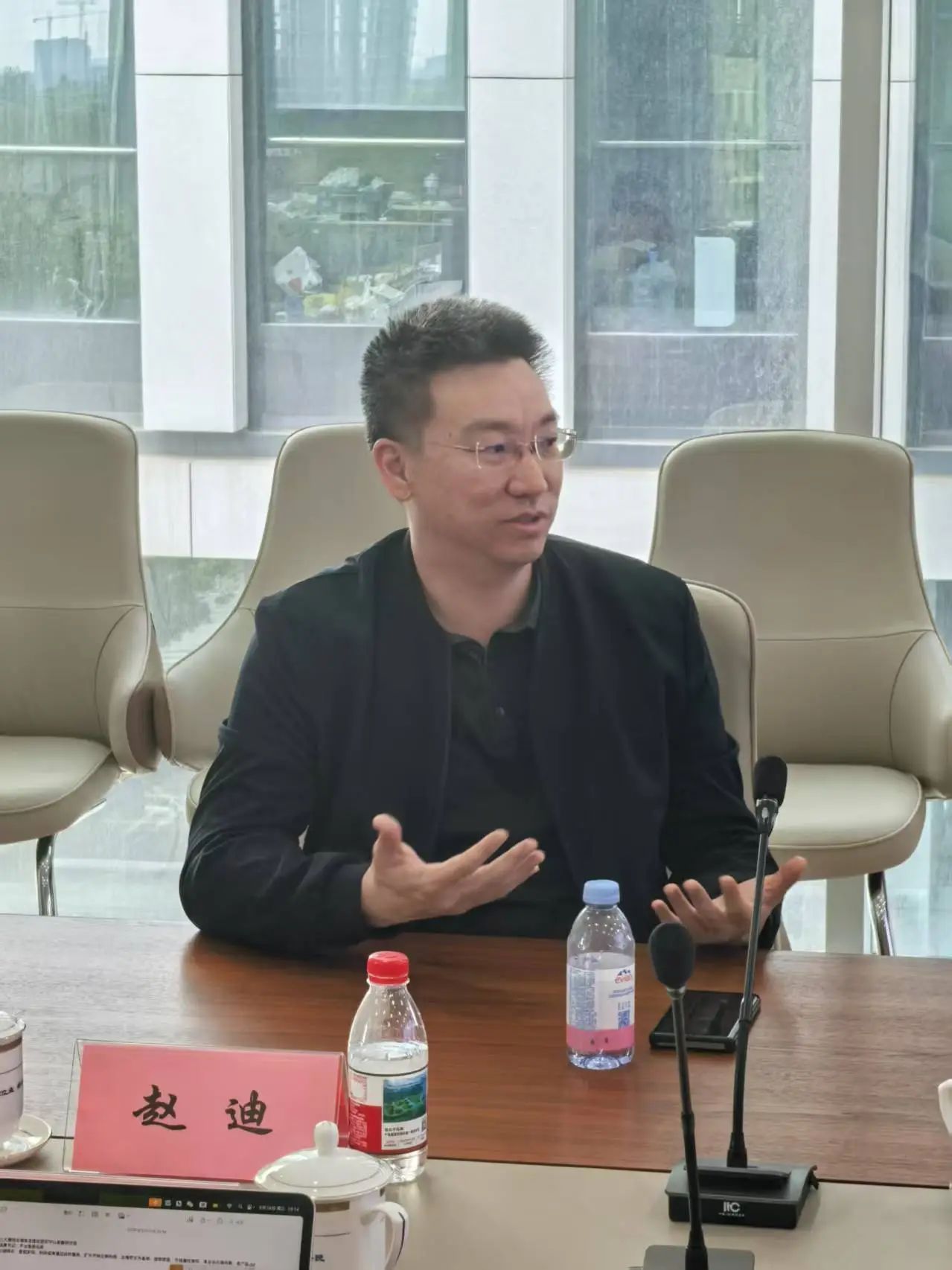
Huang Zhiting, the chairman of Jianjing Consulting, interpreted the unique advantages of school-enterprise cooperation from the perspective of enterprise practice. He pointed out that as an advocate of the "borderless consulting" concept, Jianjing Consulting has always been committed to building a cross-field and cross-regional industrial chain ecosystem. Meanwhile, the accumulation of Shanghai University in academic research, policy interpretation, and international resources can precisely make up for the shortcomings of the enterprise in theoretical depth and forward-looking layout. "Only by combining the 'brainpower' of universities with the 'footwork' of enterprises can we truly create practical and effective overseas security solutions." " Huang Zhiting disclosed that Jianjing Consulting is taking the research center as the hub, integrating its professional forces such as the Investment and Financing & Strategic Research Department and the Full-process Consulting Center for Barrier-Free Environment Construction, and focusing on promoting two strategic tasks: First, enhancing service capabilities by developing digital tools such as the "Overseas Safety Assessment Model" and the "Cross-border Industry Map" to provide intelligent and customized consulting services for enterprises; Second, we will expand into international markets, taking key regions along the Belt and Road Initiative such as Southeast Asia and the Middle East as entry points. We will collaborate with Shanghai University to establish overseas research bases, gain on-site insights into local policy environments and market demands, and provide "one-stop" solutions for Chinese enterprises to "go global".
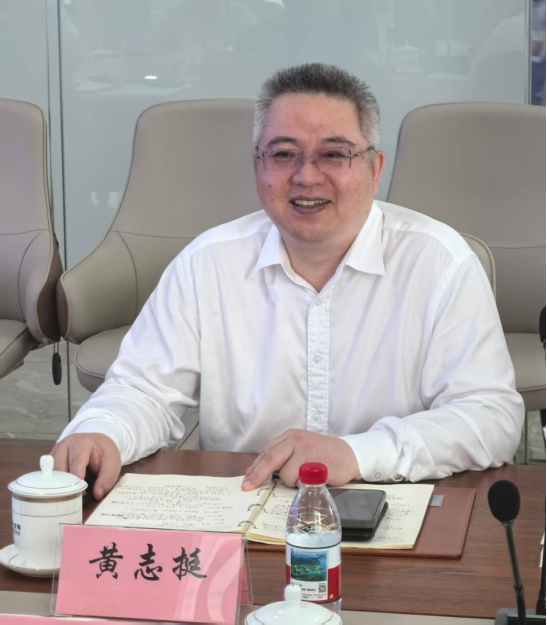
Under the joint witness of the attending guests, Duan Yong, the deputy secretary of the Party Committee of Shanghai University, and Huang Zhiting, the chairman of Jianjing Consulting, grandly unveiled the plaque for the "Shanghai University - Jianjing Consulting Overseas Safety Park Research Center". This ceremony marks that the cooperation between the two sides has moved from theoretical discussion to the stage of physical operation. According to the plan, the research center will establish professional committees such as industrial planning, risk prevention and control, and brand communication, gathering the core expert forces of both sides. It is planned to release a series of forward-looking research results within the year and promote substantive research and practical work, focusing on key issues in the field of overseas security, to provide systematic support for the international development of enterprises.
Zhao Pengwei, Director of the Comprehensive Department of the Scientific Research Management Department and Director of the Office of the Cultural New Economy Research Institute of Shanghai University, Li Bin, a consultant from Jianjing Consulting, and relevant personnel from the Shanghai Branch, Youkang Design Institute, the Full-Process Consulting Center for Barrier-Free Environment Construction, and the International Consulting Department attended this event.
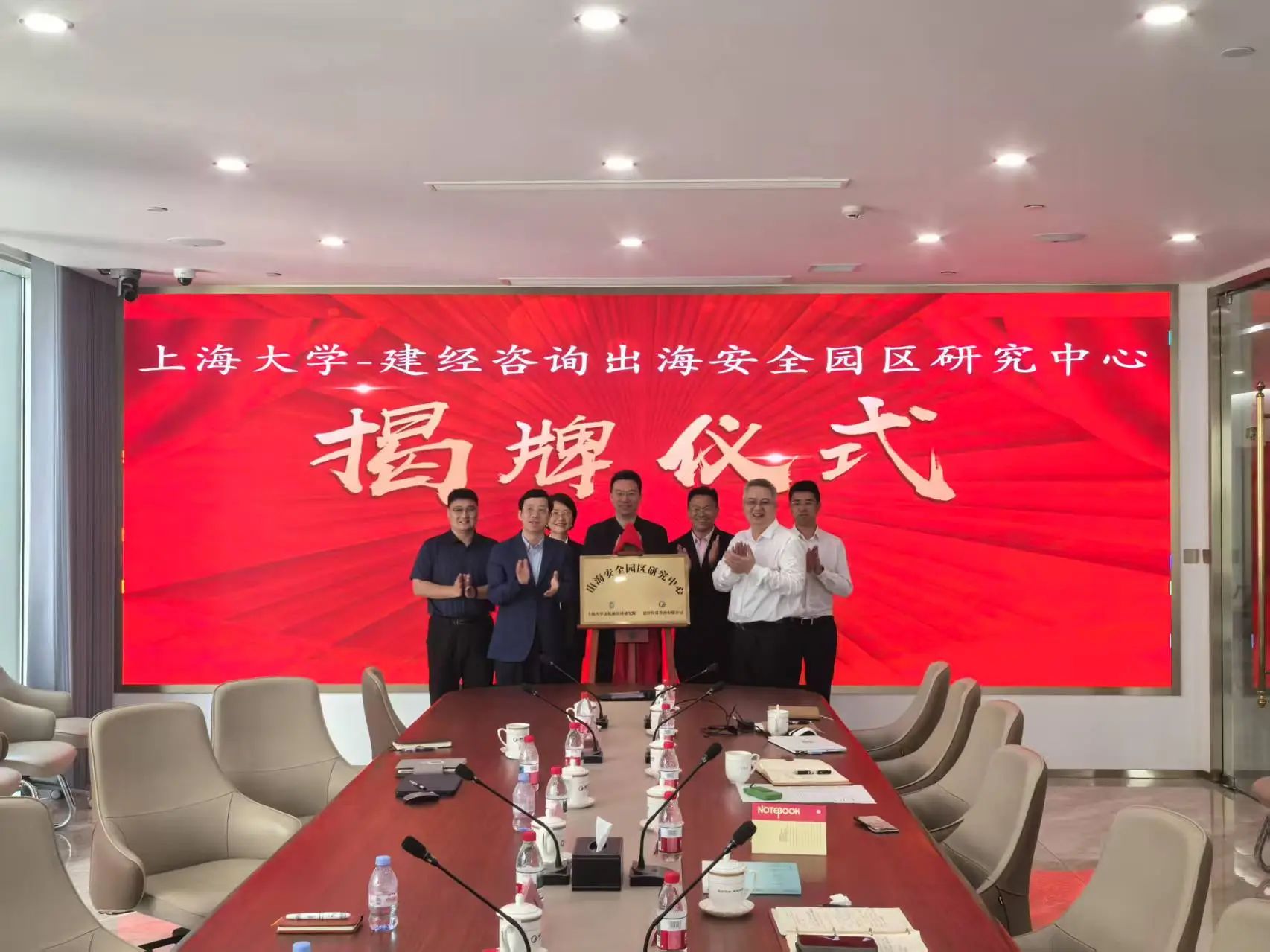
The successful holding of this exchange and seminar is not only a phased summary of the cooperation achievements between the two sides, but also a new starting point for in-depth development. Shanghai University and Jianjing Consulting will take the research center as the carrier, continuously deepen the integrated mechanism of "industry-university-research-application", and carry out all-round cooperation in areas such as industrial planning, risk prevention and control, and talent cultivation. As Duan Yong said in his summary: "In the tide of globalization, we should not only be the 'trendsetters', but also the' leaders'." It is believed that through the collaboration between schools and enterprises and complementary advantages, a safe and efficient "bridge" can surely be built for Chinese enterprises to go global, allowing the seeds of the new cultural economy to take root, sprout, blossom and bear fruit on the world stage. In the future, both sides will closely adhere to the strategic goal of "deep-sea overseas expansion", and with a more open perspective and more practical measures, promote the development of the overseas security park from concept to practice, contributing Chinese wisdom and strength to building a new development pattern and promoting the transformation of the global economic governance system.

We will contact you within 24 hours.